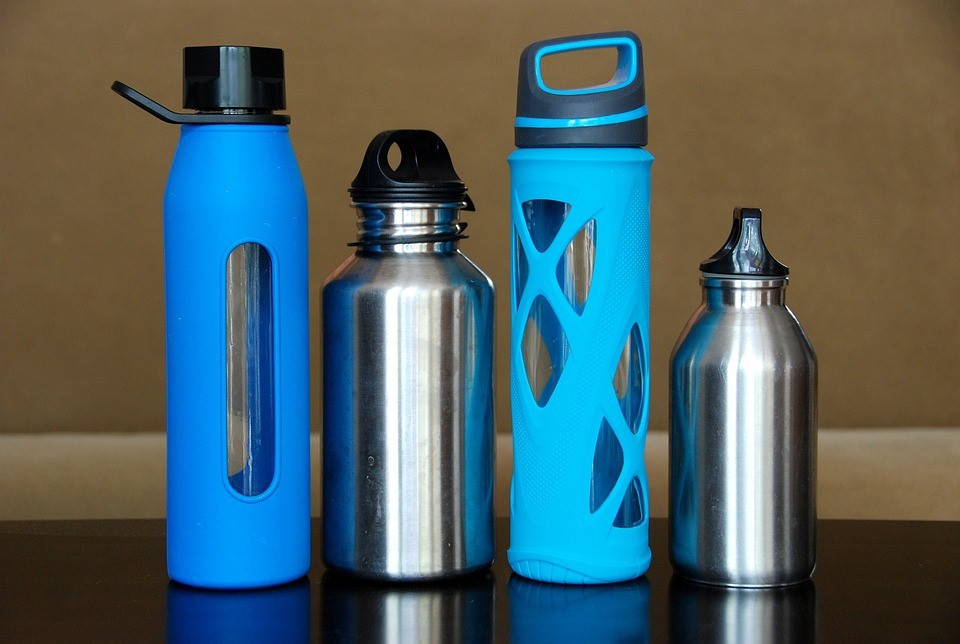
Staying Healthy During Pregnancy
Welcome back to our nutrition during pregnancy series! So far, we have talked about recommended foods AND foods to limit or avoid during pregnancy. Today, we shift our focus to other ways to stay healthy during pregnancy, these include: prenatal vitamins, proper hydration, physical activity and rest. We will go over recommendations and reasons for these recommendations. Let’s begin!

Prenatal Vitamins
Prenatal Vitamins—these are multivitamins made just for pregnant women. Compared to a regular multivitamin, prenatal vitamins have more of some nutrients that are especially important during pregnancy. These include:
Folic Acid – Folic acid is a B vitamin needed for the rapidly dividing cells, protein metabolism and also the formation of red blood cells. Taking folic acid before and during early pregnancy can help prevent neural tube defects.
- During pregnancy, it is recommended to take a prenatal vitamin that has 600mcg of folic acid in it. For women who have had a baby with a neural tube defect in the past, the recommendations for folic acid supplementation increase.
- You can also get folic acid from food! Many foods such as bread, breakfast cereal, flour, pasta, tortillas, and rice have folic acid added to them. Other foods like leafy green vegetables, lentils, beans, and OJ naturally have folate. Try to include these foods in your diet!
Iron – a mineral that your body uses to make hemoglobin, a protein in red blood cells that helps carry oxygen from your lungs to the rest of your body.
- During pregnancy, it is recommended to take a daily prenatal vitamin that has 27mg of iron.
- You can also get iron from food such as lean meat, poultry, seafood, fortified cereals, bread and pasta, leafy green vegetables, beans, nuts, raisins and dried fruit.
Calcium – a mineral that is important for bone, teeth, heart, muscle and nerve development and function.
- During pregnancy, try to get at least 1,000 mg of calcium each day. Note that most prenatal vitamins do not contain this much calcium, so if you do not get enough calcium from your diet, talk to your doctor about taking a separate calcium supplement.
- Good food sources of calcium include: milk, cheese, yogurt, plant-based milks that are fortified with calcium, broccoli, dark leafy greens, and orange juice that has calcium added to it.
Vitamin D – helps maximize the absorption of calcium to help create strong bones and teeth.
- The recommendation for Vitamin D supplementation is 600 IU per day.
- Good food sources of vitamin D are fatty fish like salmon, fortified milk and cereal
DHA – stands for docosahexaenoic acid. It is an omega-3 fatty acid that is vital to the development of your baby’s brain, eyes and nervous system.
- During pregnancy, it is recommended to take a prenatal vitamin that contains 300mg of DHA each day.
- Good sources of DHA include: fish that are low in mercury, and fortified OJ, milk and eggs
Taking a daily prenatal vitamin and eating healthy foods can help give you all the nutrients you and your baby need during pregnancy. With so many options of prenatal vitamins out there, we know that choosing a vitamin that meets your needs during pregnancy can be a little overwhelming. So, when choosing a vitamin make sure that it contains the following amounts of these nutrients:
| Nutrient | Recommended amount during pregnancy |
| Folic Acid | 600 mcg |
| Iron | 27 mg |
| Calcium | 1,000 mg |
| Vitamin D | 600 IU |
| DHA | 300 mg |
Hydration
Proper hydration is essential. Every cell, tissue and organ in our body needs water to function.
- It is recommended that pregnant women drink approximately twelve 8 oz glasses of water or other beverages (caffeine-free or 100% fruit juice) per day.

Physical Activity
Almost all women should be physically active during pregnancy. However, it is important to keep in mind that pregnancy is not a time to try to get fit, rather it’s a time to stay active and healthy for you and your growing baby.
- Regular physical activity may
- Help you and your baby gain the appropriate amounts of weight
- Reduce backaches, leg cramps and bloating
- Reduce your risk for gestational diabetes and postpartum depression
- Boost mood and help when feeling overwhelmed
- Recommendations:
- Try to include at least 30 minutes of moderate physical activity on most, if not all, days of the week *with the guidance of your physician*. Thirty minutes of exercise most days can feel daunting and hard when you are tired, but you don’t have to do all 30 minutes at once, these can be broken down into three 10-minute or two 15-minute intervals throughout the day.
- Try activities like walking, swimming, or prenatal yoga. There are lots of free prenatal exercise videos online!
- Avoid activities that have a high risk of falling or injury.
- After week 12 in your pregnancy, avoid exercise that require you to lie flat on your back.
- If you already do vigorous activities (like running), you can continue to do them throughout your pregnancy *under the guidance of your physician*.

Rest
Pregnancy and the time after you deliver can be a time full of all sorts of emotions: wonder, excitement, stress, tiredness. Being good to yourself can help you cope with these emotions. Some things that may help include:
- Try to get the recommended 7-9 hours of sleep per night. Sleep improves your immune system and brain function and is especially important during pregnancy because it regulates growth hormone levels.
- Pregnancy can make getting enough sleep difficult—between a growing belly, body aches, increased urinary frequency, heartburn, etc. BUT there are things you can do to help improve your quality of sleep:
- Prep yourself for sleep at least 30-60 minutes before turning off the lights. Unwind by turning off electronics and putting your phone on “Do Not Disturb.”
- Try different stress reduction techniques such as a short stretching or pampering routine like putting on lotion.
- Trust your judgment.
- Take a moment to laugh.
- Don’t feel like you need to do it all on your own. Seek help from family or friends.
Thank you for joining us for our nutrition during pregnancy series! We hope it was helpful and that you enjoyed it. We know that there is a lot of pregnancy information out there, and sifting through it all can be overwhelming! You can always refer back to these blogs as well as this USDA website which has many more resources available for pregnant women. Also, remember to leave a comment or question at any time and check out our accompanying videos where we give more examples of the different recommendations that we’ve covered in this series. Wishing you a happy and healthy pregnancy!


